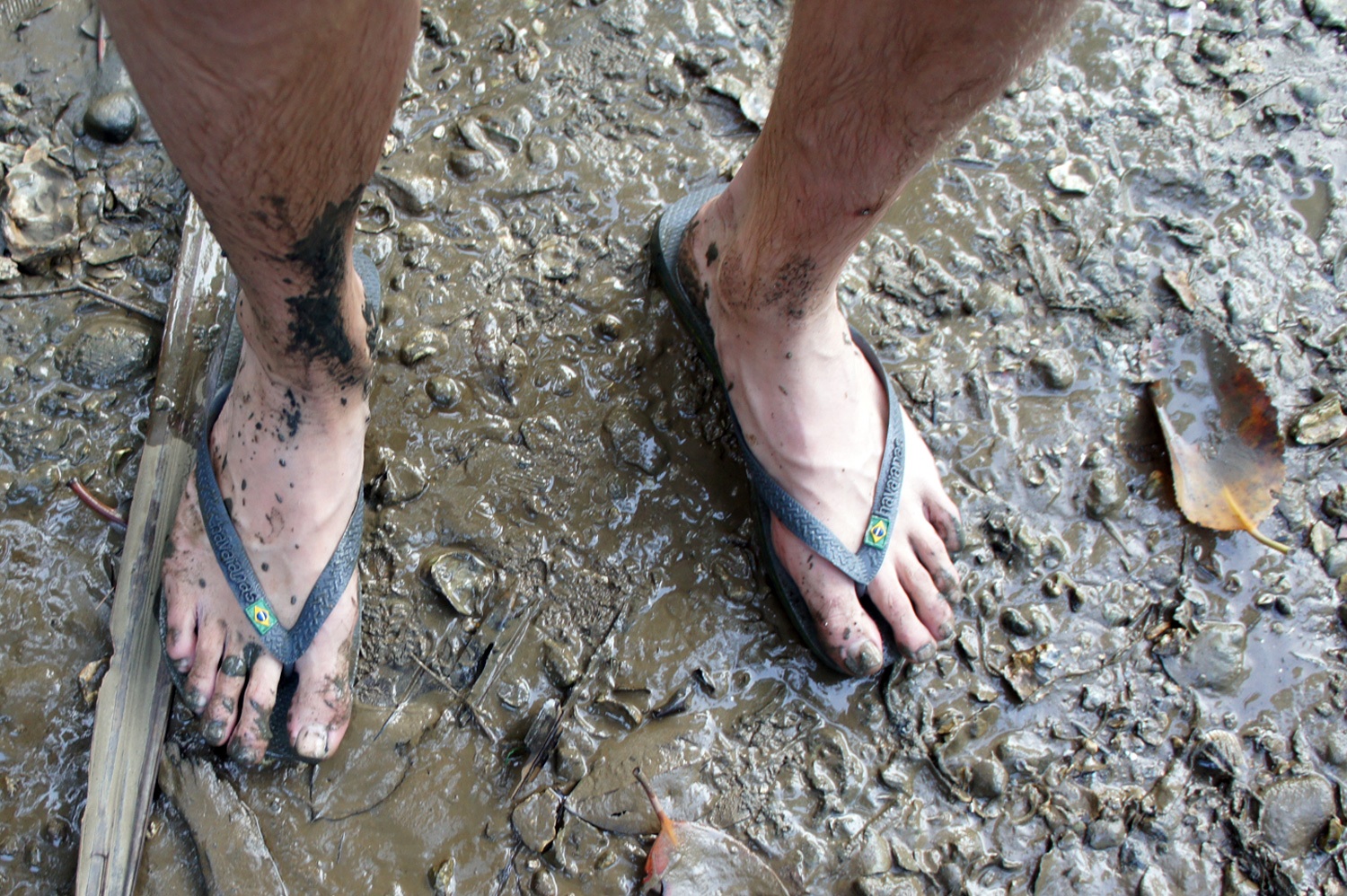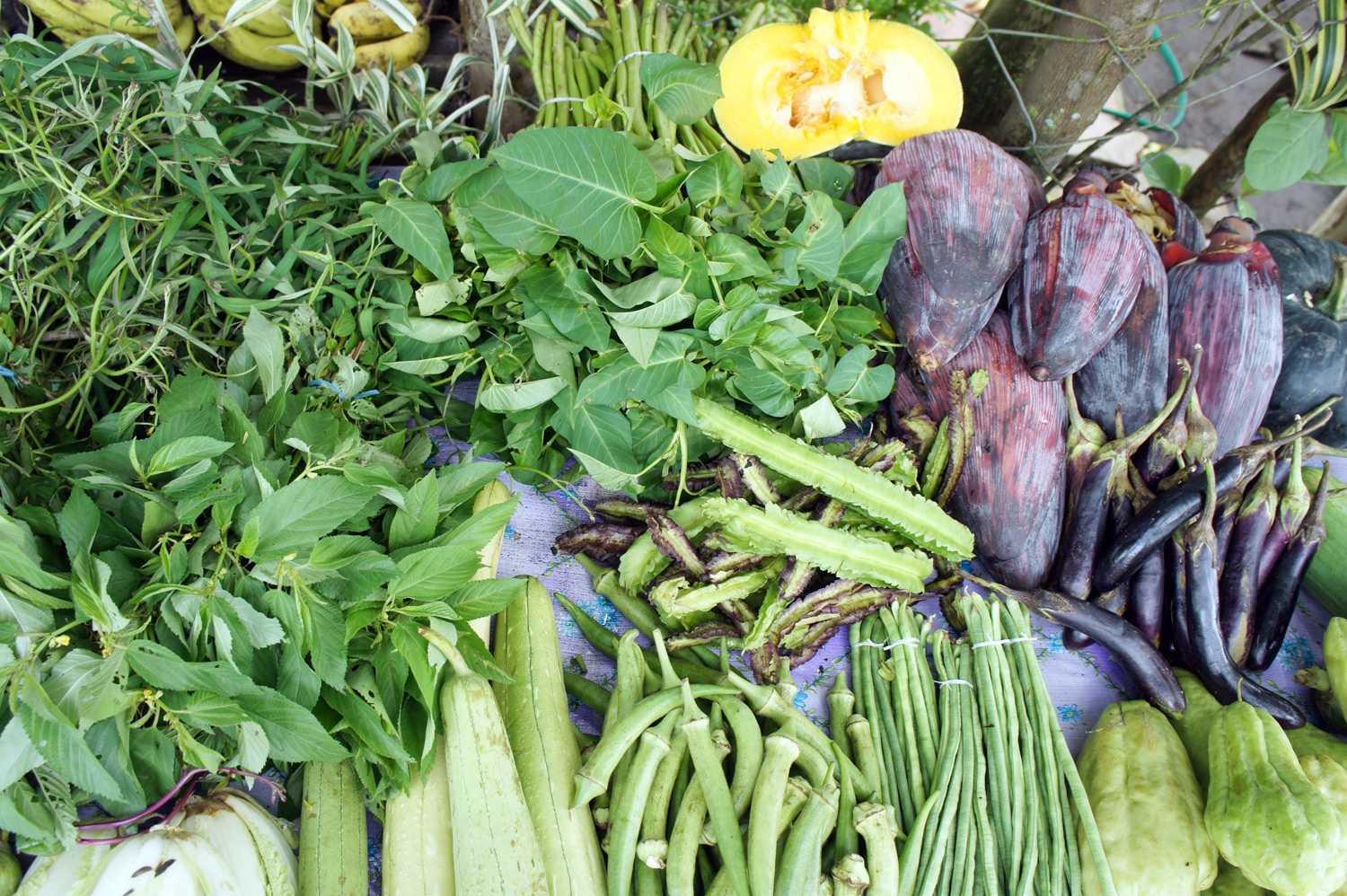
I have some good news and some bad news...
Bad news first? My output of sweat has not decreased even though I have now been in the Philippines for more than a week. The humidity of the Negros Islands continues to feel like 100%. But, I really can't complain because without this tropical weather, I wouldn't have the beautiful landscapes to see or film.
The good news? I am starting to get a handle on the learning curve of my new equipment. The camera is starting to feel like an extension of my arm, or perhaps an extension of me, and it's helping me capture footage from these borrowers in ways that would have never been possible if I was still shooting with DSLR's. The first borrower we filmed was the perfect example of this... She owned a furniture making business and we were taken to her woodshop to film.
Walking in there, you could feel the hard work she put in: the wood shavings, the smell of varnish, and the different pieces of furniture being asessmbled all around the shop.
Walking in there, you could feel the hard work she put in: the wood shavings, the smell of varnish, and the different pieces of furniture being asessmbled all around the shop.
 Attaching GoPro to the saw - epic shot! . Photo credit: Yungkit
Attaching GoPro to the saw - epic shot! . Photo credit: Yungkit Filming this scene woukd have been nice with my old camera, but much of the fine details that give this space its character would have been washed out. With my new camera, the details of each unique piece of lumber were shot in immense detail and the Black Magic cameras' 13 stops of dynamic range perfectly capture the beautiful indor/outdoor setting on that sunny morning. I know I'm not scoring any cool points here, but I really can't help but be excited.
 Borrower and Pach, . Photo credit: Yungkit
Borrower and Pach, . Photo credit: Yungkit The next few days were filled with us visiting different female borrowers: a furniture maker as i mentioend earlier, a pig farmer, and two vegetable farmers.

All four women had borrowed money to further their business and have suceeded! The pig farmer we met was in fact called a "pig fattener" where they purchase piglets, grow them to much larger sizes and resell them at a higher price.
 Pretty cute bacon there. Photo credit: Yungkit
Pretty cute bacon there. Photo credit: Yungkit You may not know it, but this little piglet is only 2 months old! He got really excited to see us (or perhaps the expectation of getting food) and constantly jumped up onto the fencing. We thought this would be a great shot to film, but for some reason, right when the camera lens was pointed at them, they seemed to have lost their enthusiasm. But with much perseverence we finally got the piglet to jump into frame to chow down on some grub.
 Two month old piglet, Photo credit: Yungkit
Two month old piglet, Photo credit: Yungkit
 Two month old piglet, Photo credit: Yungkit
Two month old piglet, Photo credit: Yungkit One thing I learned was that all crew members should be ready to get their feet compeltely submerged in mud and/or some form of brown stuff while on a shoot on a farm. Lucky for us, there were always water pumps somewhere nearby to rinse off. For some reason though, the locals seem to never get dirty AT ALL. Even when we are always at least ankle deep in the mud.
 Dirty feet. Photo credit: Yungkit
Dirty feet. Photo credit: Yungkit Awesome Ramil passed out while we were filming (after a long 5hour drive). Photo credit: Yungkit
Awesome Ramil passed out while we were filming (after a long 5hour drive). Photo credit: Yungkit Our third profile piece was Juanita, possibly the most smiley woman we've met thus far. Her business was farming vegetables including green beans and eggplants. Unfortunately, not too long before our interview, a large rainfall had wiped out her crops. Although it was tough, she continued on with a very positive attitude. She concentrated on what she had rather than what she had lost.
 Aparently I pose funny when I shoot. Photo credit: Yungkit
Aparently I pose funny when I shoot. Photo credit: Yungkit This ox loved the mud. Photo credit: Yungkit
This ox loved the mud. Photo credit: Yungkit Throughout the more rural areas of the Philipines, there are small shops that sell snacks, sometimes household items and drinks. Juanita was also the owner of one of these shops. Using the money she had earned from farming, she started a small snack shop next to her home selling to the local neighbors. At the end of our shoot, we were able to purchase a few refreshing drinks and sit down and chat with her while we packed up the gear.
 Me, Juanita and her cousin. . Photo credit: Yungkit
Me, Juanita and her cousin. . Photo credit: Yungkit Being a Kiva fellow really allows us to step into the lives of people from different cultures. As Juanita and her cousin sat down to chat, they were swaying a large net filled with pillows and blankets back and forth. Upon further inspection, we had realzed that there was a little baby inside, fast asleep to the chatter of the adults nearby. The home-made rocking crib looked so comfortable some of us (who will remain nameless) were extremely tempted to jump in and catch a nap.
 Little baby in home-made rocker. Photo credit: Yungkit
Little baby in home-made rocker. Photo credit: Yungkit Our next interview was with Joy, also a vegetable farmer, but to a slightly smaller scale. She truly lived up to her name and was an absolute pleasure to work with. Her smile was intoxicating and her personality shined bright through the camera lens.
 Joy and her Zuchinni. Photo credit: Yungkit
Joy and her Zuchinni. Photo credit: Yungkit Filming Joy's interview. Andrew helped :) Photo credit: Yungkit
Filming Joy's interview. Andrew helped :) Photo credit: YungkitShe has a small garden at the back of her home where she grows vegetables such as eggplants, green beans, cabbage, squash and much more. They are sold on a small table outside of her home on most days - except for Sunday where her and her mother take the vegetables to the market to sell.
 Such fresh vegetables! Photo credit: Yungkit
Such fresh vegetables! Photo credit: YungkitWe ended up purchasing green beans and eggplants for dinner that evening. Let me tell you, there is soemthng special about fresh and organically home grown vegetables for dinner after eating three square meals of rice, meat, and fish every day. Joy's veggies provided a welcomed detox for the crew.
 The whole neighborhood looked like a garden . Photo credit: Yungkit
The whole neighborhood looked like a garden . Photo credit: Yungkit Little kid watching our shoot. Photo credit: Yungkit
Little kid watching our shoot. Photo credit: Yungkit These four amazing women once again wowed us with their dedication to hard work and their commitment to improve the lives of their families through the use of Kiva's loans!
 Joy and I :) . Photo credit: Yungkit
Joy and I :) . Photo credit: Yungkit Post-interview note: Every car ride that we took in the Bacolod area never failed to have some sort of beautiful landscape that was post-card worthy. Having Pach and the MFI driver, Ramil, with us helped a lot when we would randomly stop on the side of the road to take a shot of some gorgeous scenery or some workers digging through a rice field or chopping through sugar cane.  NWTF people waiting as I filmed on the side of the road (Andrew, Pach and Ramil). Photo credit: Yungkit
NWTF people waiting as I filmed on the side of the road (Andrew, Pach and Ramil). Photo credit: Yungkit
 NWTF people waiting as I filmed on the side of the road (Andrew, Pach and Ramil). Photo credit: Yungkit
NWTF people waiting as I filmed on the side of the road (Andrew, Pach and Ramil). Photo credit: Yungkit Once again, thank you NWTF for a great set of interviews and the chance to meet the people who best represent Kiva's potential for success.
PREVIOUS ARTICLE
A Portrait of Peru →NEXT ARTICLE
SF Budget & Finance Committee passes Kiva Zip Resolution →













